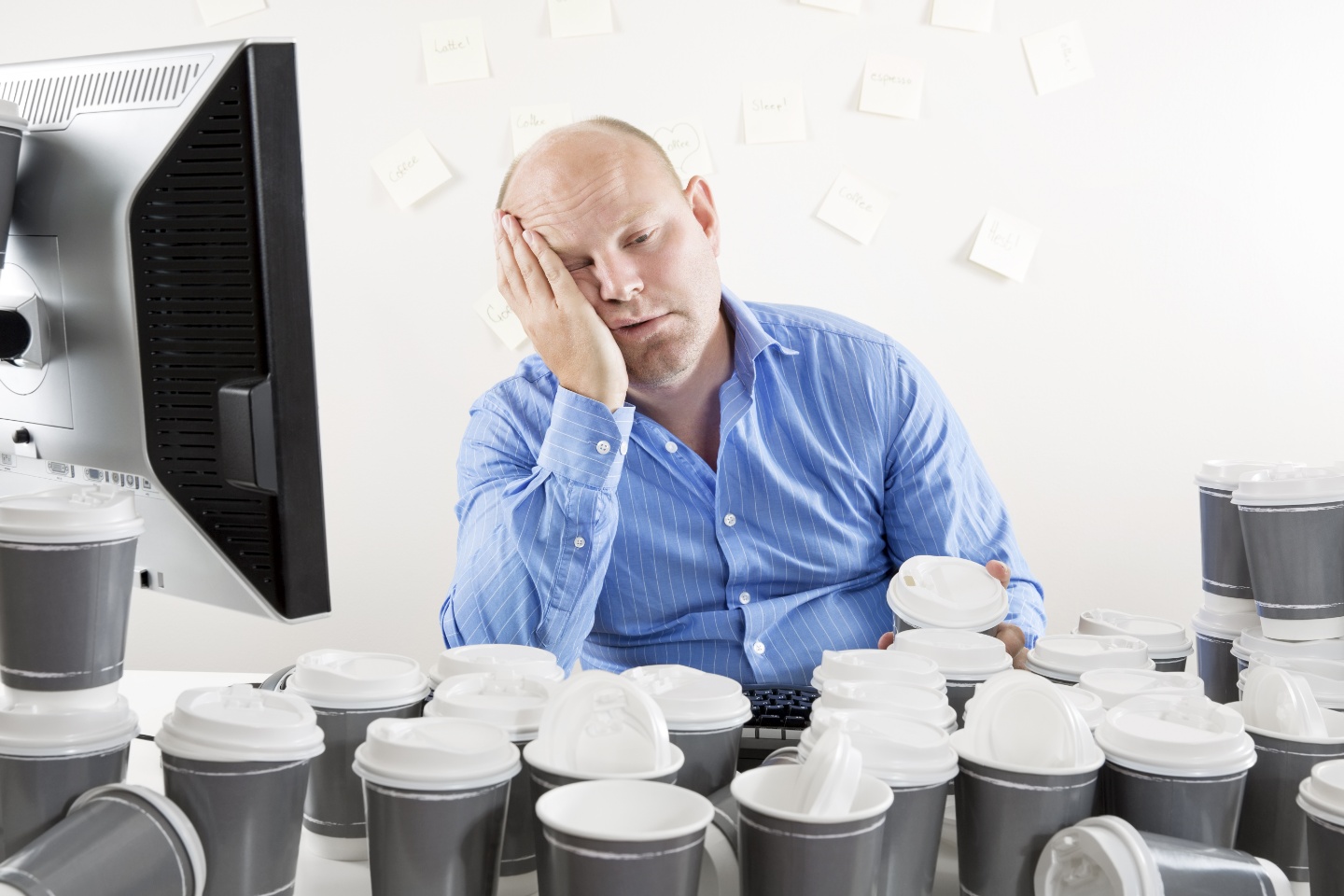 |
| ▲Caffeine addiction (Source: Shutterstock) |
In the early morning, while busy getting ready for work, there are some people who drink coffees even though they haven’t eaten breakfast. Caffeine has become part of daily life, so much so that it’s easy to see people walking down the street holding a cup of coffee on any normal day. However as caffeine is now common in everyday life, the number of people who suffer from caffeine addiction, caffeinism, and experience the side effects of caffeine is. So, what is caffeinism and what causes caffeinism?
Adenosine is a neurotransmitter found in the human brain. This is one of the neurotransmitters that help induce sleep with melatonin, and it is created when the human brain is active. And if the concentration of adenosine becomes high, adenosine receptors receive adenosine.This process causes humans to feel sleepy and fatigued. However, if caffeine in various forms like coffee, tea, soft drinks or drugs are ingested, caffeine can reach the brain through blood. Adenosine receptors can then receive the caffeine instead of adenosine because the structure of caffeine and adenosine is similar. By blocking the adenosine, caffeine prevents the feeling of fatigue. So as a result, people don’t feel as tired after consuming caffeine. Caffeine also plays a roles in increasing heart rates, increasing alertness, and disturbing sleep. Ingesting moderate amounts of caffeine affects the central nervous system, increasing alertness and reducing fatigue. But intaking much caffeine over a long period of time can cause caffeinism. Caffeinism happens when an individual intakes more than 250mg of caffeine of caffeine (the amount of three cups of coffee) a day can cause symptoms of restlessness, nervousness, excitement or sleeplessness, and increased urination, and indigestion.
The Campus Journal conducted a survey on caffeinism with CWNU students. Among the CWNU students, 79.1% drink caffeinated drinks and 20.9% drink non-caffeinated drinks. Among the caffeine drink, 79.1% drink coffee, and 7.5% drink coffee milk and energy drinks. On average, they drink around four cups of caffeinated beverages a week. And most respondents answered that the reason they drink caffeinated drinks is to wake up from sleep (41.8%), to help concentrate and increase energy (15%), and just because they like coffee (7%). 37.3% of CWNU students responded that they experienced symptoms of caffeinism. The most common symptoms of caffeine addiction that CWNU students have experienced were fatigue, lethargy, and sleepiness (19.4%). Some experience symptoms of withdrawal if they don’t drink caffeine, such as having more difficulties doing things in the morning( 17.9%).
Students at CWNU have faced symptoms of caffeinism and caffeine withdrawal. So what are some ways to threat these symptoms? First, drink lots of water. Exercise regularly and get enough sleep. These activities will help treat caffeine addiction. Alongside these activities, write down daily caffeine intake to track it, then gradually reduce caffeine intake. Ingesting moderate amounts of caffeine can help with daily life, but too much caffeine can have negative effects. So make sure to drink caffeine in moderation to avoid caffeine dependence and to maintain a healthy lifestyle.
By Lee Yeon-jin, cub-reporter dlduswls45@naver.com
<저작권자 © The Campus Journal, 무단 전재 및 재배포 금지>

 Shrinkflation, Consumer Deception
Shrinkflation, Consumer Deception




